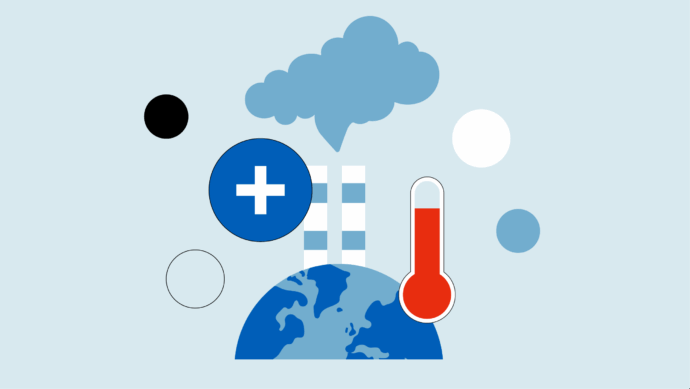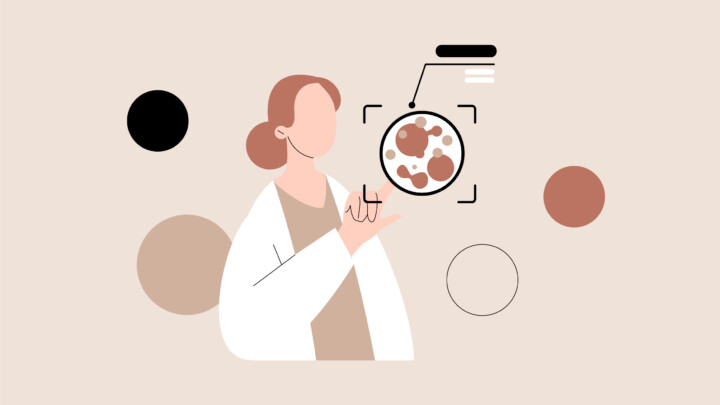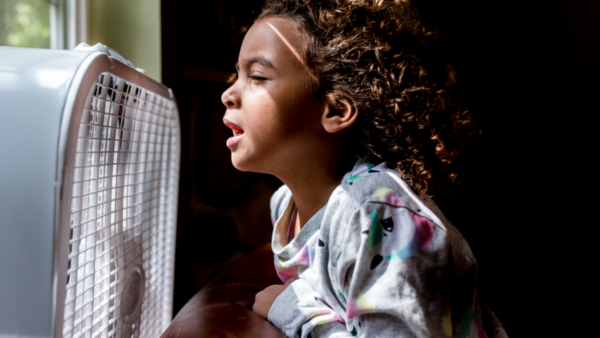
“Extreme heat, poor air quality, food and water scarcity; climate change isn’t tomorrow’s problem, it’s already shaping how doctors practice today.1” – A Sermo member and Family Medicine Physician.
On Sermo, 65% of physicians say the current healthcare response to climate change is inadequate.2Many are already seeing direct effects on patient health, such as:
- Rising respiratory illness
- Heat-related complications
- Infectious disease outbreaks1
Yet, 60% admit they don’t feel prepared to manage these emerging threats.2 This reveals a fundamental mismatch between what doctors are witnessing and the systems meant to support them.
What is the role of physicians in the climate crisis? How are they adapting to an increasingly unstable climate? And is the medical profession keeping pace with what’s happening on the ground?
In this article, we turn to Sermo poll data and physician insights to explore the real-world effects of climate change on clinical care, identify the gaps in preparedness and ask what needs to change.
Climate change and healthcare: What physicians are already seeing
How does climate change affect healthcare?
Physicians are no longer debating whether climate change affects healthcare, but rather treating its symptoms daily.
Within the Sermo community, 28% of doctors report an increase in heat-related illnesses, while 34% say they’re seeing more respiratory disease exacerbations due to pollution and wildfires.2 Another 7% have observed a rise in infectious diseases like malaria and cholera.2
One Sermo member, an Emergency Medicine physician, described the link between environmental shifts and patient health: “In my community, we have had a very pronounced drought, which causes fires, resulting in an outbreak of respiratory diseases.1”
Another physician, a Cardiologist, drew a direct line between extreme weather and public health risks: “Floods and poor hygiene are leading to cholera outbreaks.1”
And the climate impact isn’t limited to simply physical health. A Psychiatrist on Sermo warned of the deeper link between climate change and mental health: “Do not underestimate the psychological consequences. Loss of health, livelihood, home, familiar animals dwindling in numbers; they’re part of one’s environment, not just a food source.1”
These aren’t isolated cases, and they reflect a growing pattern of climate-linked disease burden across multiple specialties and regions, making it clear that the climate crisis is already a healthcare crisis.
What’s next? Anticipated climate-related health effects
What are the health impacts of climate change?
Looking ahead, 49% of physicians on Sermo expect more chronic condition complications as temperatures rise and environmental instability worsens.2 Another 19% anticipate increases in acute cases, including diarrhoeal disease and infections.2
For many, climate change and its health effects go hand in hand and are a matter of the inevitable. “We should be prepared for changes in the epidemiology of diseases,1” noted one GP on Sermo.
Indeed, certain regions are already experiencing climate change health impacts firsthand. For example, a GP in Venezuela reports that “In pediatrics and internal medicine, there is an increase in respiratory symptomatic patients associated with climate changes… some progressing to bacterial infections requiring hospitalisation.1”
From heatwaves and water scarcity to vector-borne outbreaks, physicians are asking for better predictive tools, training and planning. Their primary concern isn’t just about rising numbers of patients, but instead about emerging patterns of disease that may require clinical innovation. “We see an increase in pathologies such as dengue,1” one GP put bluntly.
Without clearer frameworks for understanding and anticipating climate-related shifts in disease, physicians risk being caught off guard by challenges that are already beginning to surface.
Are physicians prepared? The readiness gap
How are physicians preparing for climate change?
Despite the rising urgency, 60% of physicians on Sermo say they’re not prepared to care for climate-related health issues.2 This gap is due more to a gap in the readiness of the system rather than a lack of awareness.
“I hadn’t even considered how climate change would affect my patients’ health until recently,1” said one GP on Sermo. “I worry about what the future of medicine looks like with significant climate change and the potential to overload the system,1” added a Pediatrician in the U.S.
While some countries with robust healthcare infrastructure may offer a buffer, others are already seeing cracks. For physicians on the frontlines, especially in regions vulnerable to droughts, floods and infectious diseases, the lack of formal training or continuing education on climate-related conditions leaves them feeling unsupported.1
This discrepancy between what’s being seen and what’s being taught is creating a silent vulnerability in healthcare systems globally. Without investment in education, public health preparedness, political will and clinical guidance, many physicians will continue to feel they’re “catching up” to crises they can see coming.1
Systemic solutions and physician responsibility
What role do doctors play in climate change?
Only 16% of physicians on Sermo believe that current healthcare responses to climate change are adequate.2 That number points to a broader institutional lag within clinical guidance and in how healthcare systems prepare for environmental threats.
One Sermo member summarised the current state by stating, “Climate change is affecting life: respiratory issues, heat stress… and the response has been lacking.1”
Another added a more comprehensive view, “Climate change profoundly impacts healthcare… To protect public health, healthcare systems must enhance resilience, improve emergency response and promote preventive measures. Addressing climate change is essential for sustainable healthcare.1”
Physicians are calling for new structures to be put in place. That includes ensuring hospitals are equipped for extreme weather (with backup power, clean water supplies and flood protection), scaling up emergency response capacity and implementing targeted public health campaigns.1 Equally important is the role of physicians in advocacy. By making sure more physicians join the conversation, particularly in global communities such as Sermo, and pressing for institutional reform, doctors can play a pivotal part in reshaping policy and preparedness.
Your takeaway
Physicians around the world are already seeing the consequences of climate change on public health: spiking respiratory conditions, heat-induced dehydration, cholera outbreaks and new infectious threats. The data from Sermo makes it clear: the climate crisis is not a future problem but is here now and shaping the day-to-day reality of many physicians. Yet the majority of doctors don’t feel equipped to manage it.1
This isn’t just a training issue but rather a systems issue. It’s about aligning public health policy, planning, physician education and institutional infrastructure with what’s really happening in clinics today.
“Climate change is a major problem in my community of practice,” said one Internal Medicine physician from Nigeria. “We’re having an outbreak of cholera infection in my community that can be traced to recent floods and poor hygienic practices.1”
Physicians can’t solve climate change alone. But their voices and their experiences are essential to shaping a healthcare system that’s responsive, resilient and ready for what’s ahead.
Join the conversation
Are you seeing climate change affect your patients? Share your experiences and learn how others are responding by joining climate conversations on Sermo.
Footnotes
- Sermo member comment on: Sermo (2024) Poll of the Week: Climate Change and Healthcare. Available at: https://app.sermo.com/post/1329571/expanded (Accessed: 20 May 2025).
- Sermo (2024) Poll of the Week: Climate Change and Healthcare. Available at: https://app.sermo.com/post/1329571/expanded (Accessed: 20 May 2025).















